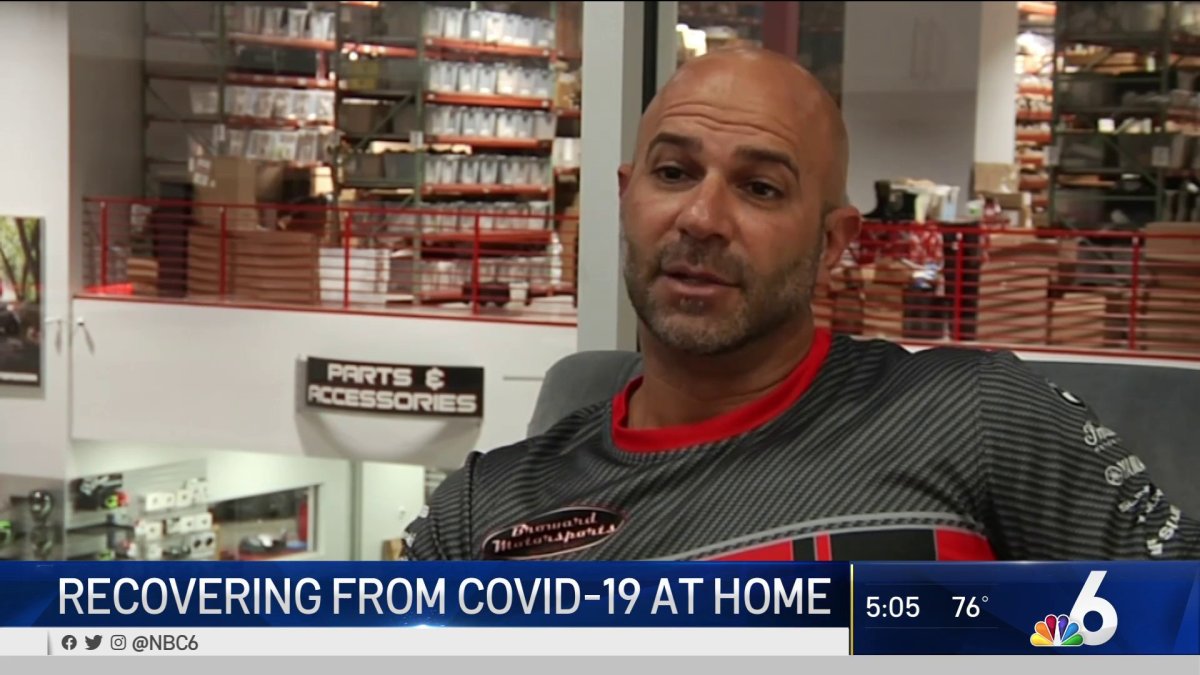
A man says that while fighting COVID-19, the hospital sent him home, and told him to monitor his own oxygen levels. He explains to NBC 6’s Derrick Lewis -how he believes that actually helped save his life — while making room at hospitals for more patients.
A South Florida man says while he was fighting COVID-19, the hospital sent him home and told him to monitor his own oxygen levels.
Sam Nehme is back at work at Broward Motorsports after his battle with the virus. He tested positive at the end of August.
“I realize that a few days into it, that I was getting worse and worse,” Nehme said. “I was a little concerned about at what point you need to go see a doctor or go to the hospital.”
He went two days later.
“I was very, very weak and lethargic at the time,” he said. “I didn’t realize it, but my oxygen level was dropping, which was making me feel the way I was feeling.”
Nehme said his doctors told him his oxygen level was at 92%, good enough to get sent home with a pulse oximeter.
Memorial Healthcare System has given out more than 200 since August.
Local
“We’re having trouble with accommodating the normal volume, in addition to patients who have coronavirus,” said Dr. Eric Bassan, a doctor at Memorial Regional Hospital.
The device allows patients to recover at home. They are asked to chart their oxygen level and given time to talk to nurses daily over the phone.
“We follow up with them,” said Bassan. “If they start to meet the criteria for developing shortness of breath and requiring supplemental oxygen, then we have them come back and we start treatment as early as possible once they require that supplemental oxygen.”
In less than a week, Nehme noticed his oxygen level fell below the 92% threshold. He was able to get back to the hospital before it got worse.
“If you don’t stay in front of it, it is going to get you,” Nehme said. “When it gets into your body, it attacks all over, it attacks your organs and the thing is, you might think you’re doing OK, and you might feel like you’re doing OK, but you’re really not and you don’t realize it and the problem is you might realize it too late.”
Memorial Healthcare said 42 people with the device have had to go back to the hospital because their health worsened, while almost 100 people have fully recovered.
“I’m very, very lucky to have made it through it,” Nehme said “I can tell you at one point in time I feel so bad and so lethargic that I really didn’t feel that I was going to make it through the next day.”
The health care system said no one using the device has died.